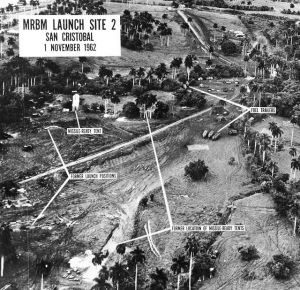The Clandestine and the Military since the 19th Century: Actors and Actions between “Information” and “Intelligence”

In the 19th and 20th centuries, boundaries between military and secret intelligence services became blurred – if they existed at all. Most modern intelligence services have their roots in the military general staff system of the 19th century, and many are subordinate to military command authorities to this day.
After all, the military made most frequent use of intelligence services’ information and has served as the most important point of reference for counterintelligence operations. Reciprocal connections between the military and the secret world of intelligence were and remain opaque. Yet, the complex relationship between the military and institutions responsible for clandestine information collection, threat analyses, and counterintelligence were insufficiently examined in historical research and security studies.
The conference seeks to invigorate the systematic scholarly exchange on this topic by exploring these relations from various perspectives, based on approaches from the fields of military history and intelligence studies.
THURSDAY, SEPTEMBER 9
9.00–9.30
Opening Address (Christoph Rass)
Introduction (Rüdiger Bergien, Andreas Lutsch, Markus Pöhlmann)
9.30–11.00
1 – Organization and Personnel
Markus Pöhlmann (Potsdam), The General Staff System and the Rise of Military Intelligence, 1871–1914
Florian Altenhöner (Berlin), The Training of German Intelligence Officers (1944/1945)
Marcus Faulkner (London), The Organization and Role of German Naval Intelligence, 1919–1939
Chair and Discussant: Tanja Bührer (Bern)
11.00–12.30
2 – The Realm of Politics: Intelligence – Military Relations
Agilolf Keßelring (Helsinki/Potsdam), The "Organisation Gehlen" as a US Military Intelligence Substitute Solution (1946–1956)?
Nicolas Leixner (München), Between Political Reform and Military Objections: The Creation of the Defense Intelligence Agency
Debora Gestenberger (Berlin), The Civilian and Military Intelligence Services in Brazil (1964–1985)
Chair and Discussant: Rüdiger Bergien (Berlin)
12.30–13.30: Lunch Break
13.30–15.00
3 – Intelligence Knowledge in the Military Decision-Making Process
Jacek Jędrysiak (Wrocław), A Troublesome Neighbor: The Institutions of the Prussian Army and Gathering of Information about the Kingdom of Poland (1815–1831)
Lukas Grawe (Bremen), Forced into the World War? The Significance of Intelligence in the Prussian General Staff, 1911 to 1914
Somer Alp Şimşeker (Istanbul), Decision Makers and Intelligence: The Ottoman Intelligence Department in World War I
Chair and Discussant: Markus Pöhlmann (Potsdam)
FRIDAY, SEPTEMBER 10
09.00–10.00
4 – Shaping the Military’s Perception of the Adversary
Stefan Laffin (Bielefeld), An Occupation by the (Hand)book? The OSS as Provider and Evaluator of Information for the Allied Occupation of Italy in World War II
Stephen Hanna (Glasgow): Imperial Japan 1895-1945: How Militarism Shackled Military Intelligence
Chair and Discussant: Marcel Schmeer (Munich)
10.00–11.30
5 – Intelligence, the Military and the Threat of Nuclear War
Egemen Bezci (Nottingham), Military Intelligence and Trial with Atoms: Turkish Military Intelligence and the Evolution of Nuclear Warfare
Constantin März (Duisburg-Essen), The Team B Experiment and its Strategic Aftermath: Controversies on US Nuclear Threat Assessment between Intelligence, Military and Government (1976-1980)
Chair and Discussant: Andreas Lutsch (Berlin)
11.30–12.00: Lunch Break
12.00–13.30
6 – Intelligence in Hot and Cold Wars
Tony Cowan (London), The Basis of Our Own Plans and Operations? German Intelligence on the 1917 Entente Spring Offensive
Tobias Schmitt (Freiburg), ‘Hot War’ or ‘Cold War’ Agency? U.S. Military Planning for the Defense of Western Europe and the ‘Militarization’ of the CIA, 1948-53
Niccolò Petrelli (Rom), Technological Innovation, Organizational and Operational Adaptation and the Future of Military Intelligence: An Interim Assessment of the “Revolution in Intelligence”
Chair and Discussant: Frank Reichherzer (Potsdam)
13.30–14.30
7 – Final Discussion
Conveners are Prof. Dr. Rüdiger Bergien (HS Bund), Jun.-Prof. Dr. Andreas Lutsch (HS Bund), Dr. habil. Markus Pöhlmann (ZMSBw)
Conference Languages are English and German
The conference will be held online on Zoom. Participants need to register before September 6, 2021 at markuspoehlmann@bundeswehr.org
